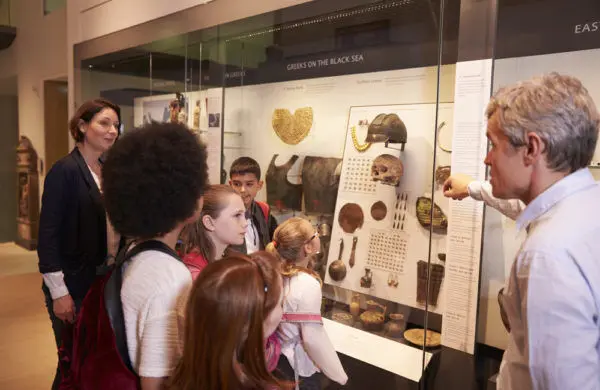Teachers in Massachusetts benefit from a state offering a mix of historical and cultural experiences. This variety provides many field trip options for their students. In addition to unique environments and experiences, many of these Massachusetts field trip sites offer programs that meet state education standards and curriculum frameworks.
That’s not a surprise for Massachusetts, a state that has long led the nation in education. Massachusetts educators use experiential education as part of curriculum design, helping to create the top-ranked public education system in the U.S., according to a 2021 study published in WalletHub. The study is the latest of many to give a high ranking to the Massachusetts education system, making the state one of the best in the nation for teachers.
As pandemic restrictions ease, teachers in Massachusetts have more opportunities to give students the hands-on experience field trips offer. They range from trips that focus on everything from STEM and history to environmental concerns and the arts.
These diverse field trip opportunities in Massachusetts are an essential theme for educators motivated to launch a career in curriculum and instruction that involves incorporating experiential learning in curriculum design.
Options for Massachusetts Field Trips
Even with the technology available in education, student field trips still offer unique educational fun. They give many students an experience unlike any they’ve had before. Most importantly, they get students off electronic devices, out of the classroom, and into the real world.
Many students also start friendships on field trips that may have never happened in the classroom. Study after study shows that experiential learning improves academic outcomes and socially responsible behavior.
In compiling a list of student field trip ideas in Massachusetts, PTO Today offers a wide range of options. The following are some of the most popular:
Museum of Science, Boston
The Museum of Science offers hundreds of interactive exhibits, a classic choice for a field trip. The Charles Hayden Planetarium presents films such as “Explore: The Universe” and “Undiscovered Worlds: The Search Beyond Our Sun.” Schools can customize field trips to the museum to support their current curriculum.
Old Sturbridge Village
The Northeast’s largest outdoor museum, Old Sturbridge Village offers students a realistic depiction of village life in the 1830s. Buildings include a school, meetinghouse, bank, and store. The village gives students the chance to experience life on a farm and participate in an 1830s court case.
Plimoth Plantation
This site goes back in time even further, giving students a village modeled after life in 17th century New England. The site also includes the Wampanoag Homesite that recreates life for Native Americans before European settlers arrived.
Woods Hole Science Aquarium
This 130-year-old facility on the Cape Cod shore focuses on caring for the environment, protecting endangered species, and natural resource management. The aquarium also allows students to see behind the scenes, such as when staff feed animals and clean tanks.
The Freedom Trail
The 2.5 mile Freedom Trail is one of Boston’s most famous tourist attractions. It also offers students a chance to see historical sites firsthand. They include Paul Revere’s House, the location of the Boston Massacre, King’s Chapel and Burying Ground, Granary Burying Ground, Old South Meeting House, and the USS Constitution.
Each of these sites gives students a unique learning opportunity. The state also offers ideas for field trips that focus on coastal and ocean education. They include Mass Audubon wildlife sanctuaries, the New Bedford Whaling Museum Education Program, the Salem Sound Coastwatch School to Sea, and the Waquoit Bay National Estuarine Research Reserve (WBNERR) School Programs in the Field.
Merrimack College Master of Education Program
Students earning an online Master of Education in Curriculum and Instruction from Merrimack College are prepared to meet Massachusetts’ rigorous standards for leadership in education. They also learn the importance of experiential learning in education.
Students take core courses focusing on Critical Issues in Education, Diversity and Social Justice, and Research Topics in Education. Graduate students also can concentrate on Moderate Disabilities and English as a Second Language.
The availability of so many high-quality locations for Massachusetts field trips is yet another example of how the state is an ideal location for teachers. A master’s degree places graduates in a position to make the best of what a career in education offers in Massachusetts.
